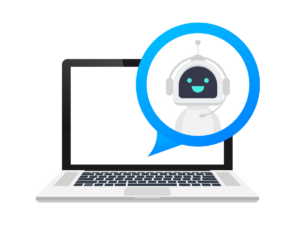Amazon has announced the launch of Amazon Q, an AI-powered chatbot focused on business organizations. Employees of organizations can now streamline their daily tasks like filling out internal support tickets, summarizing strategy documents or going through large company policies more quickly and effectively.
In order to gain a proper insight into a business, Amazon Q will connect to the company’s code repositories, existing data sources, digital documents and policies. After analyzing all these sources, the chatbot can provide summarized or tailor-made information to the employees based on their requests. Amazon’s cloud computing division developed Amazon Q and it would be a fierce competitor for the existing corporate chatbots.
“We think Q has the potential to become a work companion for millions and millions of people in their work life,” Adam Selipsky, the chief executive of Amazon Web Services, said in an interview.

The chatbot’s response and access to company data sources are controlled by an access control mechanism. Organizations can decide how much access they are willing to provide to Amazon Q. Access control can also be applied to employees, meaning organizations can control what an employee can see or to what extent they are allowed to use the chatbot.
The chatbot answers all questions and queries of developers and IT teams based on AWS best practices for debugging code. The chatbot can handle unfamiliar concepts, critical problems, code optimization and troubleshooting requests.
Likewise, Amazon Q is very helpful for marketing managers as it can transform press releases into company-specific blog posts or generate social media captions as per the brand guidelines. If given access, Amazon Q can even evaluate your marketing campaigns and suggest improvements.
Amazon chatbot replies to ad-hoc analytic questions and develops data stories on BI tools like Amazon QuickSight. It can also work on Amazon Connect on behalf of the customer service team by monitoring and recording conversations.
With the proliferation of AI-based solutions in recent years, many companies are susceptible to leveraging the innovation to their benefit due to security concerns.

“Companies were interested in using chatbots in their workplaces, but they wanted to make sure the assistants would safeguard those hoards of corporate data and keep their information private,” Mr. Selipsky said. “Many companies told me that they had banned these A.I. assistants from the enterprise because of the security and privacy concerns,” he added.
Keeping this in mind, Amazon Q heavily focuses on security for businesses and customers alike. Amazon chatbot never trains on customers’ data and is more private compared to typical consumer chatbots. Administrators can apply multiple restraints to screen out topics and responses. This refrains Amazon Q from producing biased or inaccurate responses.
“Amazon Q, for example, can have the same security permissions that business customers have already set up for their users. At a company where an employee in marketing may not have access to sensitive financial forecasts, Q can emulate that by not providing that employee with such financial data when asked” Mr. Selipsky mentioned about Q’s security.
Additionally, businesses can authorize Amazon Q to access company data stored on third-party servers, such as Slack and Gmail. Amazon Q does not rely on any one artificial intelligence model like ChatGPT and Bard. Rather, it makes use of Bedrock, an Amazon platform that integrates many AI systems, such as Titan (Amazon’s own), Anthropic, and Meta.

